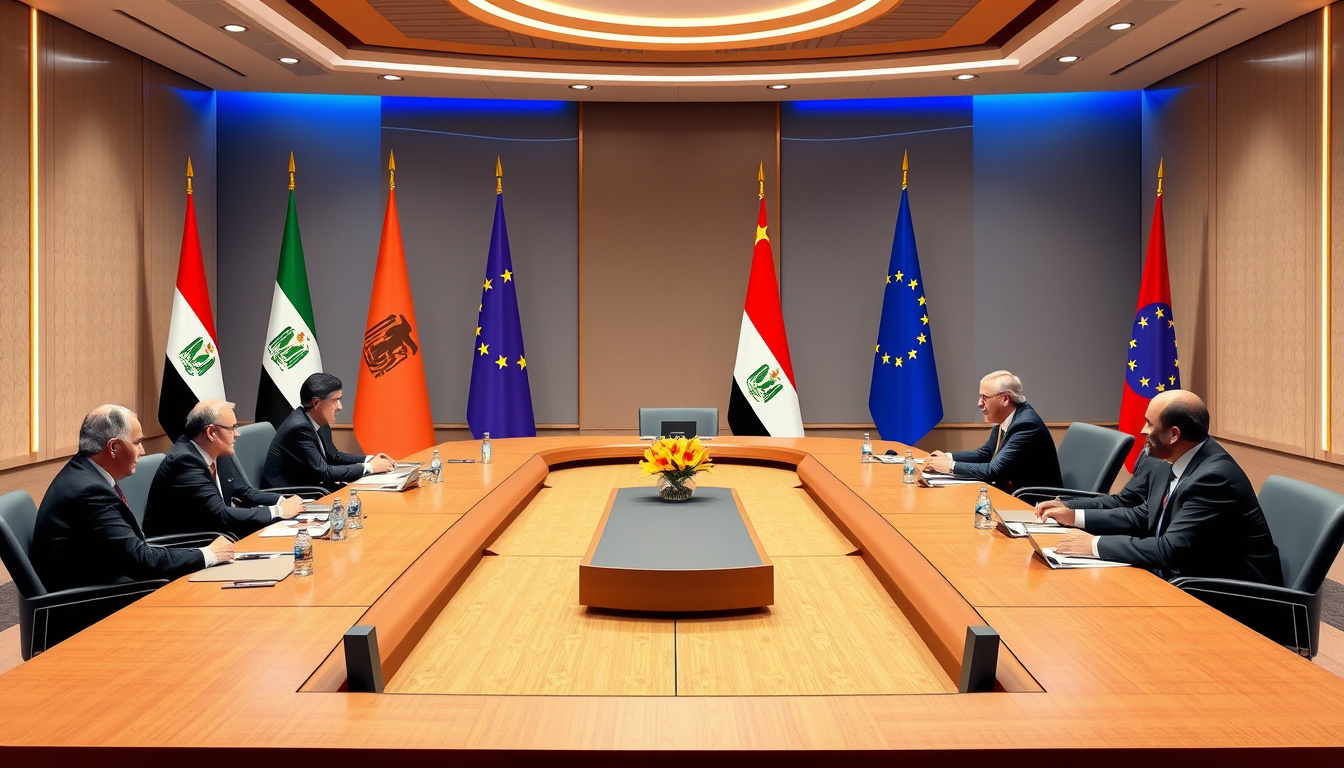The Egypt-EU Summit taking place in Brussels on October 22, 2025, marks a pivotal moment in the strengthening of ties between Egypt and the European Union.
Spearheaded by Egyptian President Abdel-Fattah Al-Sisi, and involving key figures such as European Council President António Costa and European Commission President Ursula von der Leyen, this summit builds upon the foundational partnership established earlier during a significant meeting in Cairo in March
2024.
The establishment of the Strategic and Comprehensive Partnership for 2024–2027 has set a framework for collaboration across multiple vital sectors, including political dialogue, economic stability, trade, migration, security, and human capital development.
With a significant financial commitment from the EU aimed at reinforcing Egypt’s economic resilience, discussions at the summit are set to address not just bilateral relations but also broader regional dynamics.
In this article, we will explore the highlights and implications of the Egypt-EU Summit, shedding light on the key outcomes and future collaborations that aim to foster stability and prosperity in both regions.

Key Takeaways
- The Egypt-EU Summit in Brussels marks a pivotal moment in the strategic partnership established for 2024-2027.
- A significant financial commitment of EUR
7.4 billion underscores the EU’s support for Egypt’s economic resilience. - The summit aims to enhance political coordination and address key regional issues, including migration and security.
Overview of the Egypt-EU Strategic Partnership
The Egypt-EU Summit, scheduled for October 22, 2025, in Brussels, marks a pivotal moment in the evolving relationship between Egypt and the European Union.
At this inaugural summit, President Abdel-Fattah Al-Sisi is set to engage in high-level discussions with European leaders such as European Council President António Costa and European Commission President Ursula von der Leyen.
This meeting follows a crucial session held in March 2024 in Cairo, which laid the groundwork for a Strategic and Comprehensive Partnership covering the period from 2024 to
2027.
The partnership is strategically focused on six core areas: enhancing political dialogue, ensuring economic stability, fostering trade and investment, managing migration, bolstering security, and promoting human capital development.
To underpin Egypt’s resilience against economic challenges, the EU has allocated a significant financial package amounting to EUR
7.4 billion (approximately EGP 408 billion).
This funding is directed towards crucial sectors such as energy, food and water security, digital infrastructure, and migration management, aimed at sustaining growth and stability within the nation.
The summit will also delve into urgent topics, including the dynamics of regional politics, the pressing issue of migration, and the finalization of an essential EUR 4 billion loan package aimed at supporting Egypt’s efforts to stabilize its economy amid ongoing regional tensions.
Notably, in light of recent initiatives like the Sharm El-Sheikh Peace Summit, which focuses on facilitating humanitarian support for Gaza and advancing peace efforts, this summit seeks to further solidify the Egypt-EU partnership based on mutual interests in achieving regional stability.
Additionally, an economic forum during the summit will present various investment opportunities in Egypt while addressing migration through targeted vocational training initiatives.
By convening with several European leaders, President Al-Sisi aims to enhance political coordination on critical international matters, underscoring the strategic significance of this summit for fostering future cooperation between Egypt and the EU.
Key Outcomes and Future Collaborations
As the Egypt-EU Summit unfolds, the discussions are likely to highlight the strategic benefits of the partnership formed between Egypt and the European Union.
This collaboration is expected to address pressing challenges such as the ongoing migration crisis and regional security issues by fostering economic development and stability.
With the commitment of EUR
7.4 billion, the EU’s financial support will play a crucial role in enhancing vital sectors within Egypt, setting the stage for long-term growth prospects.
Furthermore, the summit is anticipated to delve into the intricacies of economic multilateralism, emphasizing trade initiatives that can bolster both the Egyptian and European economies.
The emphasis on human capital development through vocational training is particularly noteworthy, as it aims to equip the workforce with the necessary skills to meet the demands of a rapidly changing job market.
Such foresight not only benefits Egypt but also facilitates the kind of sustainable development that can contribute positively to EU member states as they face their own challenges related to migration and economic resilience.

